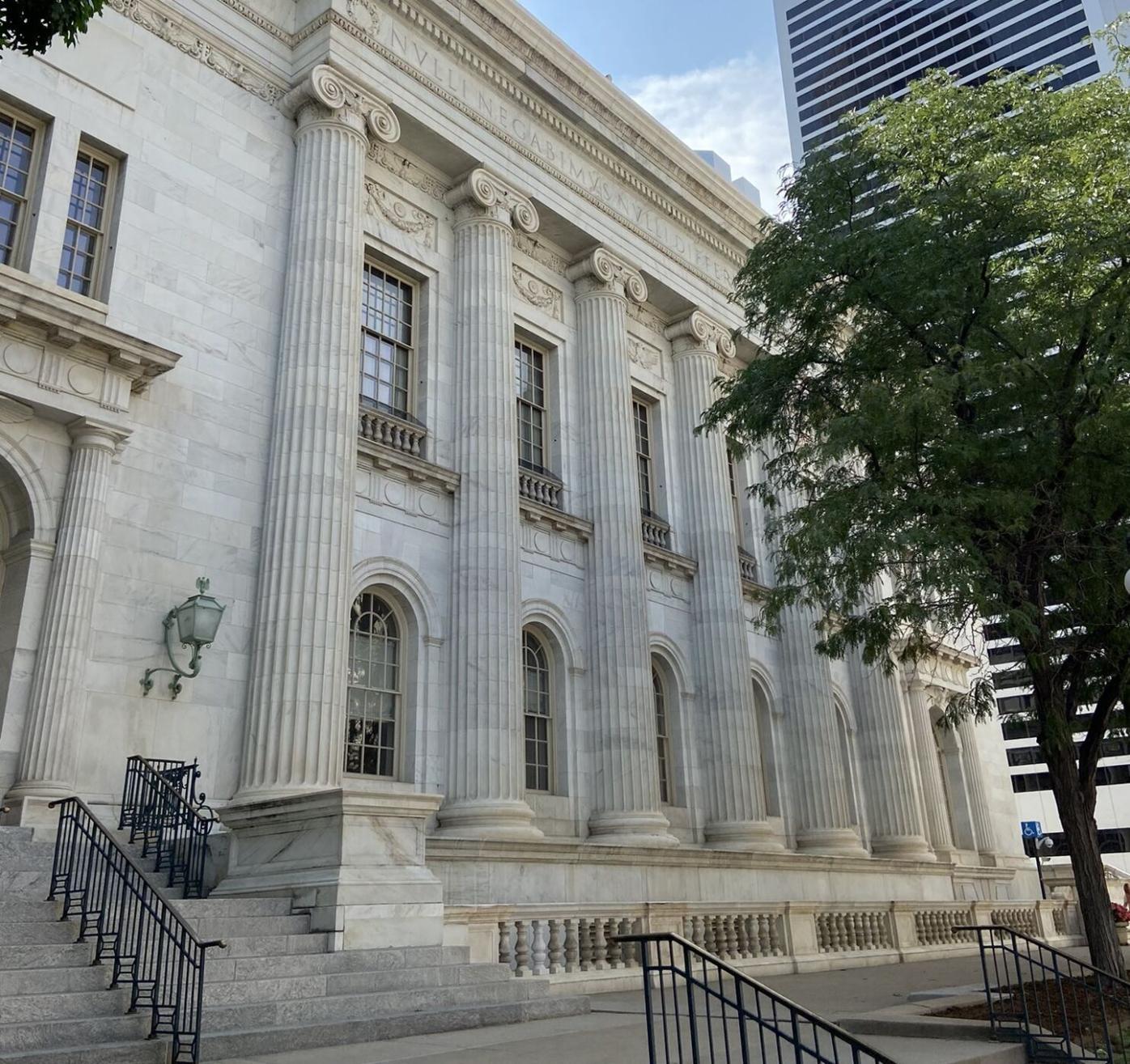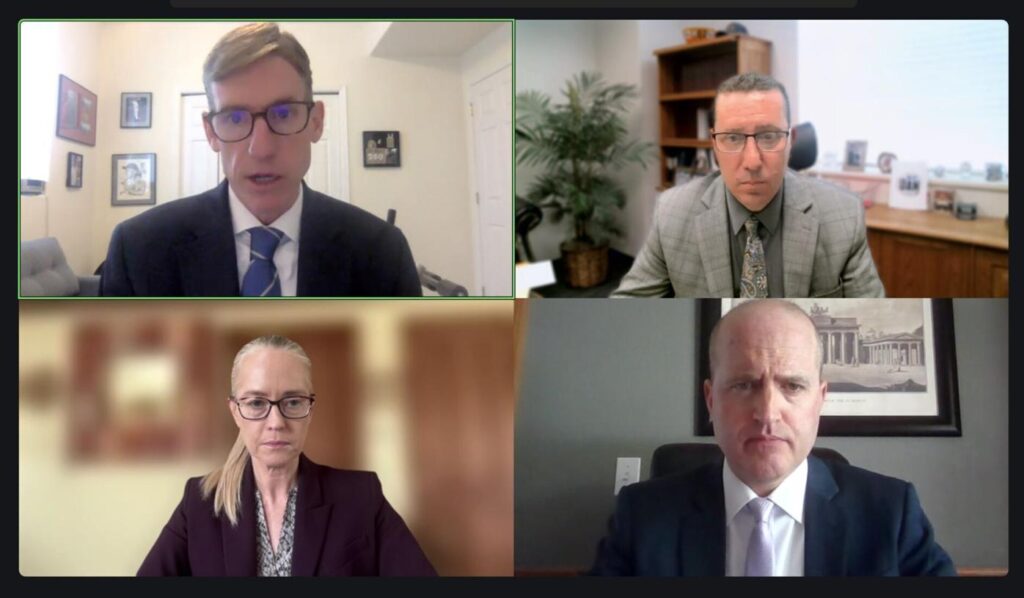Colorado judge’s financial conflict does not require reopening case, 10th Circuit finds

MICHAEL KARLIK/COLORADO POLITICS
A federal judge did violate the law when he failed to recuse himself from a case, but there is no need to reopen the lawsuit or overturn his rulings, the federal appeals court based in Denver decided on Thursday.
In what appears to be the first ruling of its kind from the U.S. Court of Appeals for the 10th Circuit, a three-judge panel confronted the fallout from a bombshell Wall Street Journal report in September 2021 that found 131 federal judges across the country presided over cases in which they or their family had an undisclosed financial stake in one of the corporate parties to the litigation.
U.S. District Court Senior Judge R. Brooke Jackson was among them, handling approximately 36 lawsuits against companies such as Home Depot and Facebook, even though Jackson and his wife owned stock in those defendants. Failing to recuse himself, even if Jackson was unaware of the conflict, was a violation of federal law.
In the wake of the revelations, a small number of litigants sought a review of their cases, which another judge stepped in to address. Although U.S. District Court Senior Judge John L. Kane agreed Jackson should never have handled the cases, he found the error did not affect Jackson’s rulings.
Dennis Obduskey, one plaintiff whose case received a second look, subsequently turned to the 10th Circuit to ask for new hearings in his 2015 foreclosure-related lawsuit against Wells Fargo. But the appellate panel, in a non-precedent-setting order, upheld Kane’s handling of his colleague’s financial conflict.
“Judge Kane agreed with Obduskey that Judge Jackson should have recused himself from this case upon its assignment to him, and that his failure to do so constituted an error,” wrote Senior Judge Mary Beck Briscoe on Feb. 9.
Further exploration of Jackson’s conflict is unnecessary, she added, because Kane acknowledged the conflict existed and still detected no effect on Jackson’s decision-making.
Gabe Roth, executive director of the judicial reform group Fix the Court, believed the judicial system handled Obduskey’s case appropriately after Jackson became aware of his undisclosed financial investment in Wells Fargo.
“On the one hand, you can make the argument that there’s always a substandard outcome when a judge sits on a case where he has a financial stake in a party,” Roth said. “But on the other, it’s fairly clear that in this instance, that stake did not imperil Judge Jackson’s impartiality.”
Obduskey was disappointed in the 10th Circuit’s view that the case is closed.
“Judge Kane and the appellate panel all agreed in their opinions that Judge Jackson should have recused. Judge Jackson told the Wall Street Journal he should have,” Obduskey said. “The bulk of the order provides cover with things that happened after Judge Jackson improperly took up the case and still makes failure to follow the law OK.”
After the discovery of Jackson’s financial conflicts, the judge explained that his wife, Liz, handled their routine financial disclosures but did not know about the need to create a list of conflicts, such that he would not handle a case implicating the Jacksons’ investments. Jackson, in a letter to the WSJ, admitted he did not examine the annual disclosures because of “my disinterest in the financial stuff.”

U.S. District Court Senior Judge R. Brooke Jackson. Photo courtesy of Marybell Trujillo of BelleImages.
Federal law, however, requires judges to keep themselves informed about their and their spouses’ finances, and to recuse when they have a financial interest in a case before them.
Obduskey filed suit against Wells Fargo and the law firm McCarthy and Holthus, LLP, challenging their efforts to foreclose on his home. At the time, Jackson’s wife held Wells Fargo stock in her investment account.
Jackson dismissed Obduskey’s claims and the 10th Circuit upheld his decision. Unusually, the U.S. Supreme Court also agreed to hear Obduskey’s case, and the justices in 2019 unanimously agreed with the outcome.
Then the clerk of the U.S. District Court informed the parties of Jackson’s conflict in late 2021. Obduskey, now without an attorney, wrote back on Nov. 29 to ask for “at least three weeks to locate counsel,” advising that he hoped to make a decision by Christmas on how to proceed.
From there, Obduskey filed no further motions. In April 2022, Kane, who was now examining Jackson’s cases, elected to review Jackson’s dismissal of Obduskey’s lawsuit to see if the financial conflict required him to overturn the decision. Kane believed it did not.
“Judge Jackson should have recused from this case upon its assignment to him without taking any other action beforehand,” Kane wrote. However, the case “was decided entirely on issues of law taking all of Mr. Obduskey’s allegations as true for purposes of the motions to dismiss.”
Obduskey appealed to the 10th Circuit, arguing the clerk’s letter was unclear about what he needed to do following the discovery of Jackson’s conflict. He asked the appellate court to order hearings into Jackson’s failure to recuse or else to restart the case anew.
The 10th Circuit found no error with Kane launching a review of Obduskey’s lawsuit after waiting four months for Obduskey to secure a lawyer. Kane was also correct in finding no reason to vacate Jackson’s dismissal decision.
“Judge Jackson did not make any contested factual findings or credibility determinations that could have favored Wells Fargo and McCarthy over Obduskey,” wrote Briscoe. The 10th Circuit and the Supreme Court had also reviewed the legal issues on appeal and still sided against Obduskey.
“Moreover, at this late stage in the lifespan of the case, disturbing Judge Jackson’s judgment entered over six years ago would likely undermine, rather than promote, the public’s confidence in the judicial process,” she continued.
Jackson, in his letter to the WSJ, acknowledged he should have known about his own financial conflict and recused from Obduskey’s lawsuit. He also confessed to being “embarrassed” that he did not fully understand the rules.
The case is Obduskey v. Wells Fargo et al.












